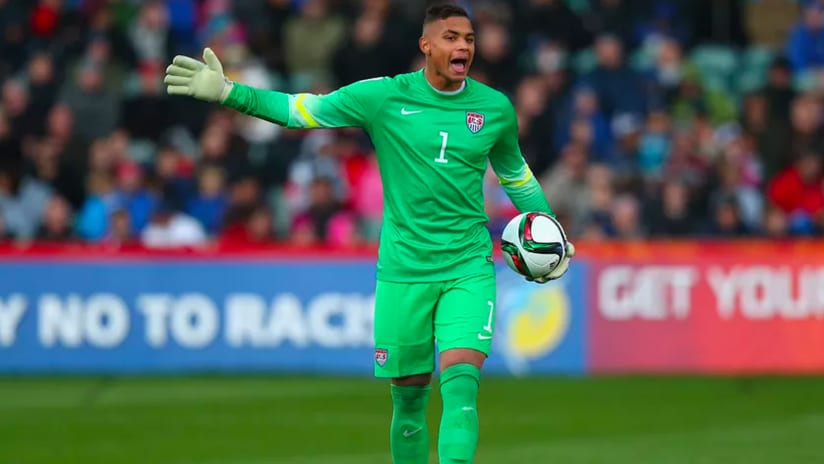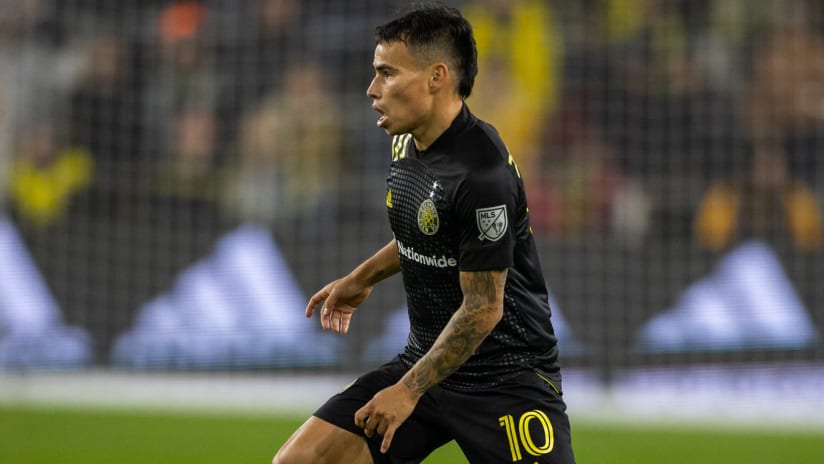Fun, formative, challenging; the common descriptions provided by Columbus Crew players as they recalled their experience at the FIFA U-20 World Cup.

Given the unique nature of each championship, the players relished the opportunity for different reasons, though the lasting takeaway seemed to return to the same overarching idea, as defender Milton Valenzuela put so eloquently:
“To represent your country – no matter what – is a beautiful thing.”
Valenzuela, David Guzmán, Zack Steffen, Wil Trapp, and Jonathan Mensah all have donned their country’s colors at the U-20 World Cup, with Crew Homegrown Player Aboubacar Keita set to become the sixth player on the Crew’s current roster to do so starting Friday, May 24 when the U.S. U-20 National Team opens Group D play against Ukraine at 2:30 p.m. ET on FS1.
Of the five Crew players with previous experience, each discussed their time playing for their youth national team on a global stage as teenagers and the meaning it ultimately carried.
“I think when you’re in it, you don’t understand the gravity of the situation,” Trapp said, “but coming out of it, after you see where guys start to make their careers based on this tournament, big clubs start to pick them up and it starts the trajectory of where they’re going to go.”
Trapp participated in the entire cycle leading up to the 2013 U-20 World Cup in Turkey – friendlies, camps, etc. – and recalled his favorite memory of when the U.S. tied France 1-1 in a game that Trapp captained alongside current Manchester United midfielder and 2018 World Cup champion Paul Pogba, who captained the French team en route to its first title.
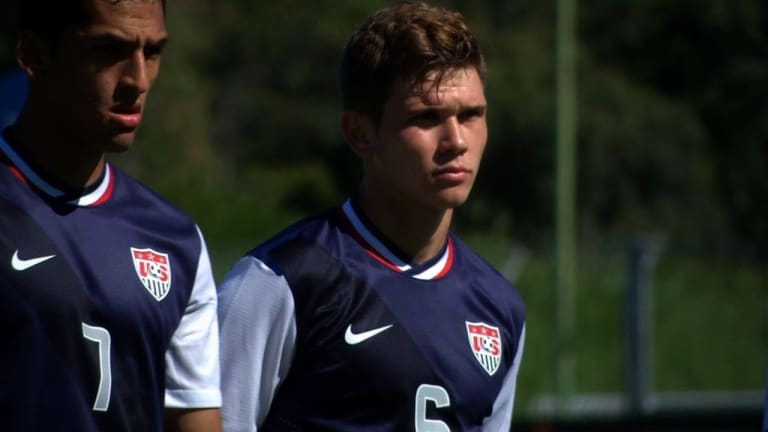
“I was captain against France and Pogba was the French captain so that was pretty cool,” Trapp said. “We tied them in that game, so it was a special moment for us and for myself, just stepping out on the field in Galatassary’s stadium, Turk Telecom, which is a beautiful stadium and playing the eventual champions but a team that was very, very good.”
Mensah, who was part of the first African team to win the FIFA U-20 World Cup when Ghana took the title over Brazil 0-0 (4-3 PKs) in 2009, was just happy to be on the team, let alone play in a World Cup final.
“I was still playing in South Africa at that time. A young player, getting the opportunity to play with the national team, it is always an honor,” Mensah said. “Being part of the team was one achievement for me. Playing was an even bigger one for me.”
That year in the final, Mensah’s team went down to 10 men in the 25th minute against Brazil and held on through a scoreless 120 minutes before winning on penalty kicks over a Brazil side that placed third overall in 2005.
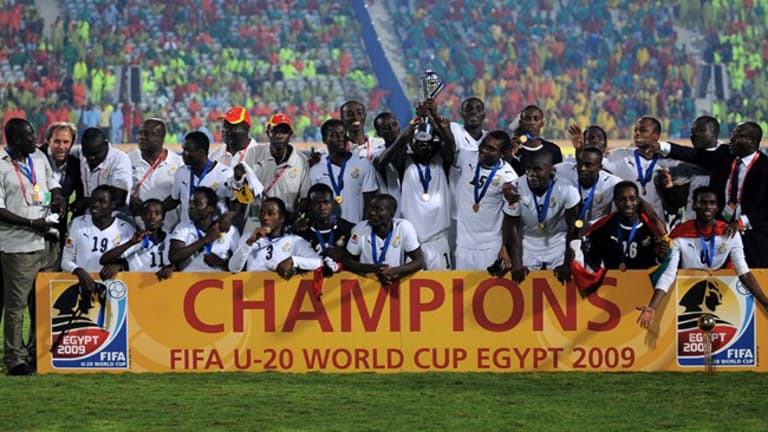
As with most players at that time, it was Mensah’s first experience in a youth championship tournament, where the fan spectacle turned from local or even regional to global.
“It was my first time and a great experience; fans were cheering for us each and every game. It took us far in the tournament. We actually won the tournament and it was one of the highlights of my youth career,” Mensah said.
Guzmán, a native of Costa Rica, which had a population of just over 4.5 million people in 2009, grew up going through the ranks of the youth system, having played with the U-15 National Team before going to the FIFA U-17 World Cup in Korea.
With high expectations, Guzmán’s 2009 team reached the semifinals before falling to Brazil 1-0 in regulation and finishing fourth overall.
By no means is the U-20 World Cup a be-all, end-all of a young player’s career, but it is a good measuring point, as Guzmán spelled out.
“It’s very nice because representing your country is always important as a player. I think the U-20 [National Team] is a good parameter to stay on track towards the Senior National Team, which is what every player wants,” Guzmán said.
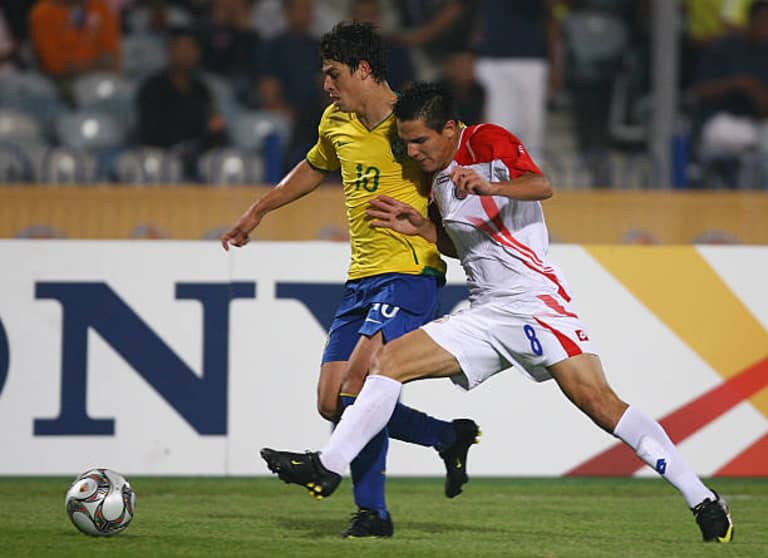
The bar was set pretty high for Costa Rica, Guzmán mentioned, but in looking back, he stressed that the most important thing is to simply stay poised and do your best.
“The most important thing is to remain calm and take advantage of the opportunity. You have to enjoy it. You only live once, and I think it’s a moment that can open doors for you,” Guzmán said. “You have to do things to benefit both the country and the group you’re representing.”
Steffen, who received his call-up while in Germany as a player for SC Freiburg, recollected on the change of pace the 2015 World Cup offered, and how the gap from friendlies and qualifying matches paled in comparison to the meaningfulness of a World Cup-level match.
“When we got on the field, it was really intense. It was different because with the national team you have friendlies and stuff and you have qualifying but once you get to the World Cup and play those games, you haven’t really played a game that meaningful and that intense and that high level,” Steffen said. “When you get there, it is a little weird, but it was so much fun.”
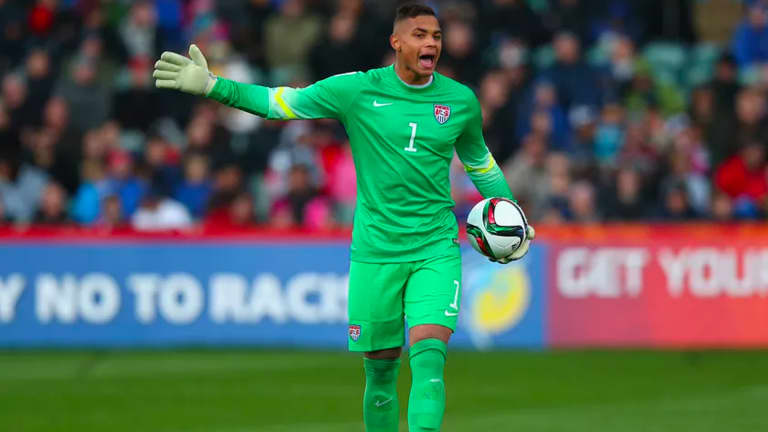
Steffen said that is it was also a good reminder that at that stage – whether it’s against Myanmar or Argentina – that World Cup soccer is, well, World Cup-caliber soccer.
“I remember going down to Myanmar. It was the first goal we let in off of a corner kick. I remember that game and coming back and getting the win, maybe it was 2-1. They were a very small country, so we were going into it obviously respecting them, but we knew we had to win it. And then when they scored, in the first ten minutes maybe, 15 minutes, we were like ‘Wow, OK, this is soccer. We are in the World Cup.’”
The learning experience was eye-opening, Steffen said, whether it was about tactics and preparation from their own side or seeing distinct approaches from other nations.
“I remember playing that style and you learn more about the game,” Steffen said on the learning curve of the national team system and what he picked up on. “The tactics and little things that other countries do in the game that the United States doesn’t really have in our culture, whether that is the South Americans wasting [time] or just being very calm and composed and mature in the pressure moments. I saw a lot of that.”
Valenzuela’s introduction to the Argentinian National Team system came as a call-up to the U-17s, where he trained a few times but, as he said, was not lucky enough to compete at that level.
His path changed come 2017 when the Crew’s Young Designated Player featured in Argentina’s squad at the South American Youth Football Championship, making seven starts while helping Argentina qualify for the 2017 U-20 World Cup in South Korea.
Surprised about being on the South American Championship roster, Valenzuela took advantage of the opportunity, playing in eight of Argentina’s nine matches en route to earning a spot on the 2017 World Cup team.
“Well, first of all, that year we had played in the South American U-20 Championship, which is to classify to the World Cup. As far as the process, I was most surprised about being in the South American Championship,” Valenzuela said. “After seeing how I had done in the tournament and continued to get called up, I set the goal to be in that roster and luckily, I was able to do it.”
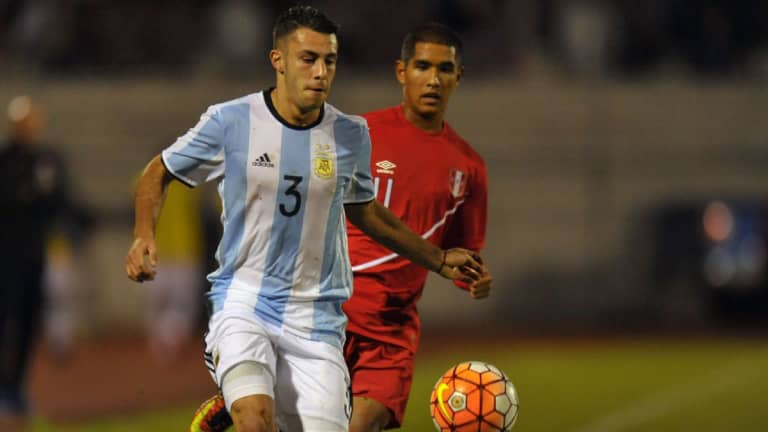
Valenzuela made two appearances (all starts) in the group stage of the 2017 U-20 World Cup and offered his reflection on the once-in-a-lifetime chance and what he would say to up-and-coming players, like Keita.
“I would say that it is a unique opportunity that you never get to experience again,” Valenzuela said. “To represent your country – no matter what – is a beautiful thing and as a footballer, it’s something that fulfills you. It’s something you always want to do. I would say to give it your all so that things turn out in the best way and you can enjoy it.”

